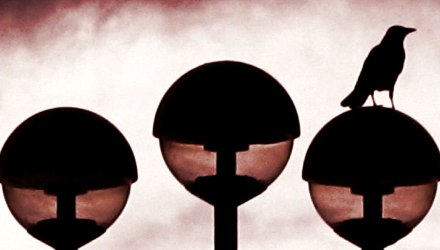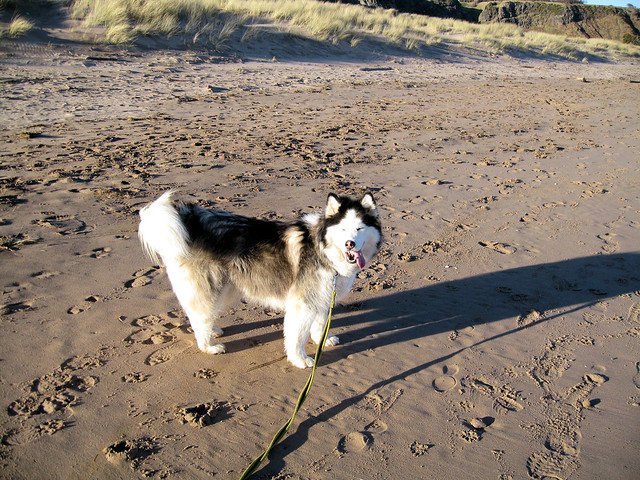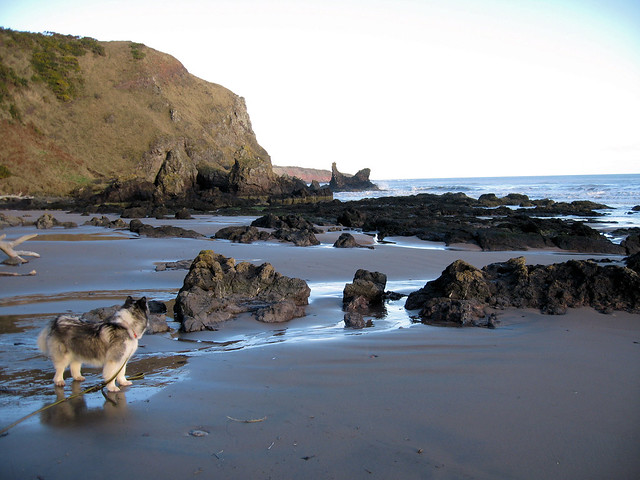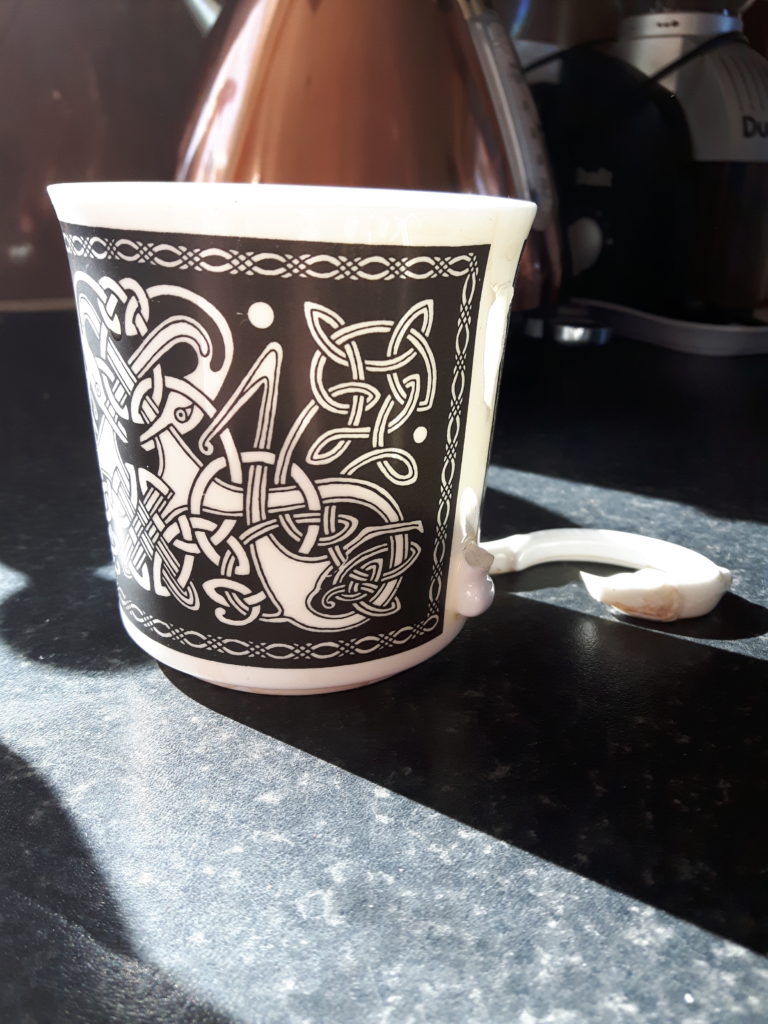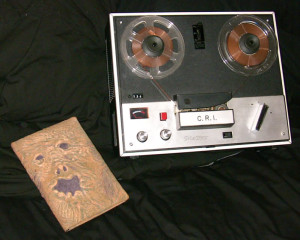Two months ago, we adopted a five-and-a-half year-old Siberian Husky/Alaskan Malamute cross. We’d been looking for a dog for almost two years at that point, and had been unsuccessful in persuading the Rescue Centres that the dogs we liked were suitable for us, and us for them.
But that was fine. We weren’t interested in any particular dog, we were interested in the right dog. We were about to register interest in yet another collie, only to be pipped at the last minute. I found out when I opened the website to show a work colleague who had also recently embarked on the dog ownership adventure.
Although disappointed that our pick had gone, I spotted a dog that hadn’t been there even that morning. After a quick check with Frood, I filled out the form, and after that it all happened very quickly.
They asked us if we were prepared for the settling in period. She may go off her food, or have digestive upsets. She might chew. The very nice woman who did the home check told us her most recent adoption ate her husband’s wallet and mobile phone, as if this were the naughtiest thing imaginable.
Our sofa was inexpensive. Wallets and phones are replaceable.
As it turned out, she had none of those problems. A little unsettled the first weekend, but she made herself right at home, aided no doubt by suddenly going from half an hour of walking a day to between one and three, with trips to the beach and expeditions into the forest.
She has been a sweet, friendly, happy and yet still independent addition to our small family, and I love her to bits.
This morning we had our first dog-related breakage.
Yes, it’s a mug. It’s a 1991 Nexus Design Celtic Knotwork bone china mug, and you can find one on Ebay for less than a tenner (not counting the nearly 25 quid postage from the States, which renders it unjustifiable).
It’s not Ming. It’s not even Royal Doulton.
It’s only a mug.
But I bought that mug from a shop in Tobermory in 1992, still dressed in a wetsuit from diving the Hispania that morning. I’d sat in a bathtub at a depth of 30m while my Dad watched and my Uncle Bill operated our RIB up top. That evening, we went to get air from the self-operated machines at Loch Aline, humping the tanks up the hill on foot. Afterwards, we went to the pub, and Uncle Bill bought me pints of 80 Shilling until I was drunk, and Dad gave me a fistful of coins so I could call Frood on the pub phone and play “No, YOU hang up!”
It was the only time I’d been on a trip with my Dad and Uncle Bill and not had the rest of the family along. It was special, and the memory is precious, because I didn’t get to spend enough time with my Dad. I was sent to school in England at the age of 15 and didn’t come back to stay a significant amount of time for another 20 years. On the rare occasion I was back home, Mum and Dad were usually busy, and the motor racing and the business and the foreign trips took up so much time I hardly got to speak to either of them, never mind hang out the way I did with Dad that long weekend.
It wasn’t Ming, it wasn’t even Royal Doulton.
But it was far more than a mug.
It was my fault; I should have been more careful. I should not have started playing with the dog before making sure this memory anchor was safely out of reach.
If it were easy to get, I’d buy another in a heartbeat. Not the same mug, no, not the one I handed over cash for while dripping on the floor of the gift shop and explaining that a cold wetsuit is a horrible thing and we were diving again that afternoon (we did, and I had a close encounter with a friendly seal who nibbled my fin).
But near enough to cradle and remember a time when Dad and I were close.

